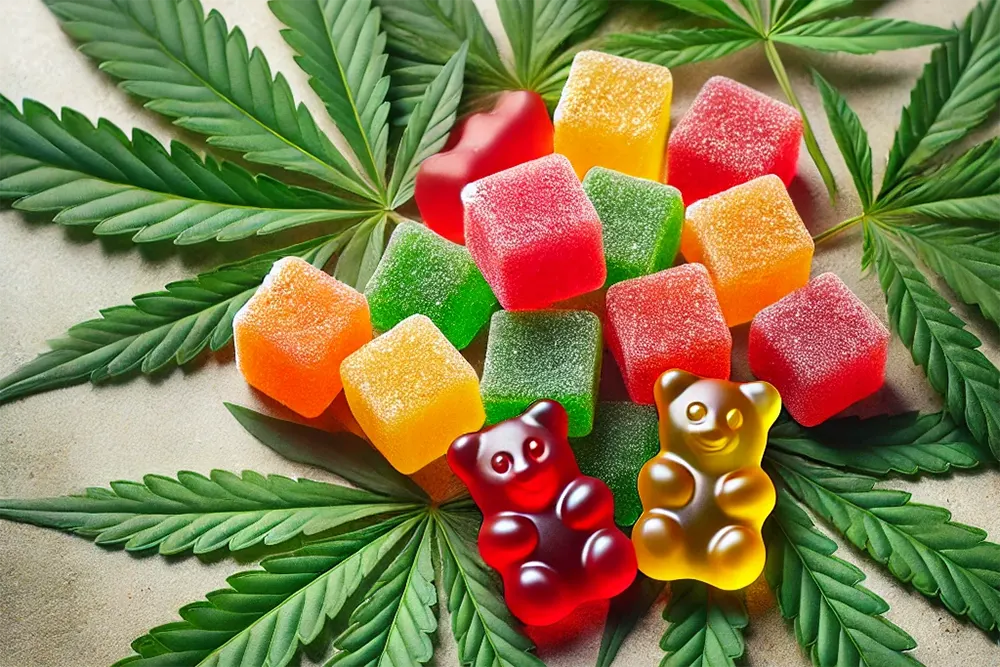
CBD (cannabidiol) is a powerful natural compound from cannabis that has gained popularity in recent years due to its numerous therapeutic properties. CBD is used to treat various conditions, such as anxiety, depression, chronic pain, acne, and even epilepsy. An important aspect of effectively using CBD is the right form of its release, which ensures the most rapid and efficient absorption by the body. In this article, we will review the different forms of CBD, their advantages and disadvantages, and compare their effectiveness.
Main Forms of CBD
CBD is available in various forms, allowing users to choose the most convenient and effective option for themselves. Here are the main forms of CBD:
1. CBD Oil
CBD oil is one of the most popular forms of cannabidiol. It has a high bioavailability, meaning that the body can efficiently absorb the active ingredient. CBD oil typically contains cannabidiol dissolved in a carrier oil, such as olive oil or hemp seed oil.
Advantages:
- Quick absorption: Oil can be taken sublingually, allowing CBD to be rapidly absorbed into the bloodstream.
- High bioavailability: The oil is highly effective because CBD directly enters the bloodstream.
- Flexible dosing: You can precisely regulate the dose using a dropper.
Disadvantages:
- Taste: Some people do not like the taste of CBD oil, although many manufacturers offer flavored versions.
- Not convenient for public use: Taking oil sublingually can be impractical in public places.
2. CBD Capsules and Tablets
Capsules and tablets are another common form of CBD. They are convenient for those looking for a simple way to take CBD with a fixed dose. Capsules can be filled with either CBD oil or powdered cannabidiol extract.
Advantages:
- Precise dosing: Each capsule contains a fixed dose of CBD, making it easy to control the amount consumed.
- Convenient to use: Capsules are easy to take and have no distinctive smell or taste, making them ideal for those who do not like the taste of oil.
Disadvantages:
- Slower absorption: Capsules must be digested in the stomach, which slows the effect of CBD. This means the effect of capsules may take 30-60 minutes.
- Lower bioavailability: Since capsules pass through the digestive system, some CBD may be lost due to metabolic processes.
3. CBD Tinctures
Tinctures are liquid forms of CBD, typically containing cannabidiol in an alcohol solution. They are used in a similar way to oils but may be more stable for longer periods.
Advantages:
- Quick absorption: Like oils, tinctures can be taken sublingually, allowing active ingredients to be quickly absorbed.
- Easy to use: Tinctures typically have a milder taste compared to oil, which may be a benefit for some users.
Disadvantages:
- Dosing issues: Although many tinctures are labeled with dosing information, unlike capsules, it may be more difficult to control the exact dose.
4. CBD Creams and Balms
CBD creams, balms, and ointments are used for local application to treat pain, inflammation, or skin issues such as acne or eczema. They contain cannabidiol mixed with other active ingredients to help the skin.
Advantages:
- Localized effect: Creams and balms are ideal for spot treatment on specific areas of the skin where the effect is needed.
- Reduces inflammation: Due to their anti-inflammatory properties, CBD creams help reduce inflammation and pain in localized areas.
Disadvantages:
- Limited bioavailability: Since creams are used for external application, they do not provide a systemic effect throughout the body. CBD remains localized in the application area.
- May not be suitable for all skin types: Some people may be allergic to certain components in the cream or balm.
5. CBD Gummies
CBD gummies are a tasty and convenient way to consume cannabidiol. They contain a precisely dosed amount of CBD in each gummy, making them ideal for those who want to control their dosage without using droppers or capsules.
Advantages:
- Tasty way to consume: For many people, gummies are a more pleasant way to take CBD.
- Portability: CBD gummies are convenient to consume anywhere without the need for special dosing tools.
Disadvantages:
- Slower action: Like capsules, gummies must pass through the digestive system, which delays their effect.
- Lower bioavailability: Compared to oils or tinctures, gummies have lower bioavailability.
How to Choose the Best Form of CBD?
The choice of CBD form depends on your needs and personal preferences. If you need quick and precise dosing, capsules or oil might be ideal. If you're looking for a convenient and tasty way to take CBD, gummies could be a good option. For local application, such as for pain or skin issues, you may want to consider creams and balms.
Conclusion
CBD is available in different forms, each with its own advantages and disadvantages. The choice of form depends on your needs and how quickly and effectively you want to achieve the desired results. Depending on the type of treatment and your body's characteristics, one of the forms described above, or a combination of several, may suit you best.
